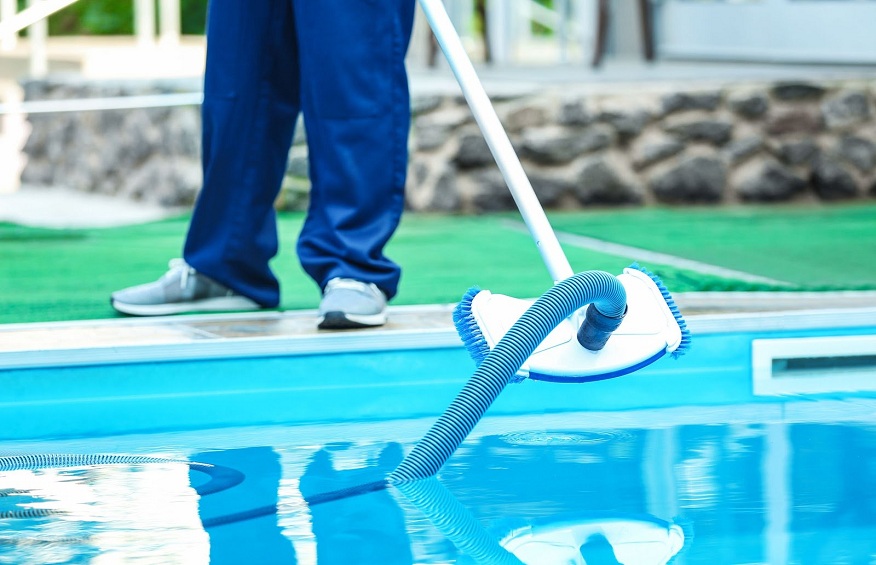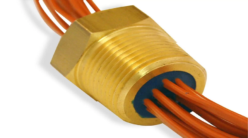Pool maintenance is an essential aspect of owning a swimming pool. Not only does it ensure the health and safety of swimmers, but it also helps to prolong the life of the pool itself. Regularly using swimming pool maintenance products is necessary to keep the water clean, clear, and free from harmful bacteria and algae. Neglecting pool maintenance can lead to a variety of issues, including health risks for swimmers and damage to the pool’s structure.

The Dangers of Algae Growth in Pools
One of the most common problems that pool owners face is algae growth. Algae are microscopic organisms that thrive in warm, stagnant water. When left untreated, algae can quickly multiply and cover the entire surface of the pool, turning the water green and cloudy. Not only is this unsightly, but it also poses health risks to swimmers.
Algae can cause skin and eye irritation, respiratory problems, and even infections. In addition to the health risks, algae growth can also damage the pool’s structure. Algae can clog filters and pipes, leading to reduced water flow and increased strain on the pool’s equipment. It can also stain the pool’s surfaces and cause them to become slippery and unsafe.
Chemical Treatments for Algae Removal
There are several chemical treatments available for removing algae from pools for swimming pool repair. The most common method is to use chlorine, which is a powerful disinfectant that kills algae and other bacteria. Chlorine can be added directly to the pool water or used in conjunction with algaecides, which are chemicals specifically designed to kill algae.
Chlorine works by breaking down the cell walls of algae, effectively killing them. However, it is important to use chlorine in the correct dosage to avoid over-chlorination, which can be harmful to swimmers and damage pool equipment. It is also important to regularly test the chlorine levels in the pool and adjust them as needed.
The Benefits of Natural Algae Control Products
While chemical treatments can be effective in removing algae, they often come with their own set of drawbacks. Many pool owners are turning to natural algae control products as a safer and more environmentally friendly alternative. These products use enzymes and beneficial bacteria to break down organic matter and prevent algae growth.
Enzymes work by breaking down the organic compounds that algae feed on, effectively starving them and preventing their growth. Beneficial bacteria, on the other hand, consume the nutrients that algae need to survive. By introducing these natural agents into the pool, pool owners can effectively control algae growth without the use of harsh chemicals.
One of the main benefits of natural algae control products is that they are safe for swimmers and do not cause skin or eye irritation. They are also safe for the environment and do not harm plants or animals. Additionally, natural algae control products are often more cost-effective in the long run, as they require less frequent application compared to chemical treatments.
Using Shock Treatments to Keep Your Pool Clean
In addition to regular maintenance and the use of chemical or natural algae control products, shock treatments are an important part of keeping a pool clean and clear. Shock treatments involve adding a large dose of chlorine to the pool water to kill bacteria, algae, and other contaminants.
Shock treatments are typically done every week or after heavy pool usage, such as a pool party or a period of heavy rain. They help to maintain proper chlorine levels in the pool and prevent the growth of algae and other harmful bacteria. It is important to follow the manufacturer’s instructions when using shock treatments to ensure safe and effective results.
The Role of Pool Filters in Maintaining ClearWater
Pool filters play a crucial role in maintaining clear water by removing debris, dirt, and other particles from the water. There are three main types of pool filters: sand filters, cartridge filters, and diatomaceous earth (DE) filters.
Sand filters are the most common type of pool filter and work by passing water through a bed of sand to trap particles. Cartridge filters use a replaceable cartridge to trap debris, while DE filters use a fine powder made from fossilized diatoms to filter out impurities.
Proper maintenance of pool filters is essential to ensure their effectiveness. This includes regular cleaning and backwashing for sand and DE filters, as well as periodic replacement of cartridges for cartridge filters. Neglecting filter maintenance can lead to reduced water flow, poor filtration, and increased strain on the pool’s equipment.
The Benefits of Regular Skimming and Brushing
Regular skimming and brushing are important tasks in pool maintenance that help remove debris and prevent algae growth. Skimming involves using a net or skimmer to remove leaves, insects, and other floating debris from the surface of the water. This should be done daily to keep the pool clean and prevent clogging of the filter.
Brushing the pool walls and floor helps to remove algae and other organic matter that may be clinging to the surfaces. This should be done at least once a week using a pool brush with stiff bristles. Brushing not only helps to prevent algae growth but also improves water circulation and enhances the effectiveness of chemical treatments.
The Importance of Maintaining Proper pH Levels
Maintaining proper pH levels in the pool is crucial for several reasons. pH is a measure of how acidic or alkaline the water is, with a pH of 7 being neutral. The ideal pH range for pool water is between 7.2 and 7.8.
If the pH level is too low (acidic), it can cause skin and eye irritation, corrode metal fixtures, and damage pool surfaces. On the other hand, if the pH level is too high (alkaline), it can lead to cloudy water, scale formation, and reduced effectiveness of chlorine.
Regular testing of pH levels is important to ensure that they are within the proper range. pH test kits or test strips can be used to measure the pH level of the pool water. If the pH level is too high or too low, it can be adjusted using pH increases or pH decreases, respectively.
Preventing Algae Growth with Proper Pool Covering
Properly covering the pool when it is not in use is an effective way to prevent algae growth. Pool covers help to keep out debris, sunlight, and rainwater, all of which can contribute to algae growth.
There are several types of pool covers available, including solid covers, mesh covers, and automatic covers. Solid covers provide the most protection by completely blocking out sunlight and preventing debris from entering the pool. Mesh covers allow water to pass through while keeping out debris, and automatic covers can be easily opened and closed with the push of a button.
It is important to choose a pool cover that is appropriate for your specific needs and climate. Pool covers should be properly fitted and securely fastened to ensure maximum effectiveness.
Conclusion
In conclusion, pool maintenance is essential for the health and safety of swimmers and the longevity of the pool. Algae growth is a common problem that can lead to health risks and damage to the pool’s structure. Chemical treatments, such as chlorine and algaecides, are commonly used to remove algae from pools. However, natural algae control products offer a safer and more environmentally friendly alternative.
Regular skimming and brushing, along with shock treatments, help to keep pools clean and clear. Proper maintenance of pool filters is also important for maintaining clear water. Maintaining proper pH levels and properly covering the pool when not in use are additional measures that can prevent algae growth.
By choosing the right pool maintenance products and following proper maintenance procedures, pool owners can enjoy clear, sparkling water and a safe swimming environment. Regular maintenance and attention to detail are key to ensuring the longevity and enjoyment of your pool.





